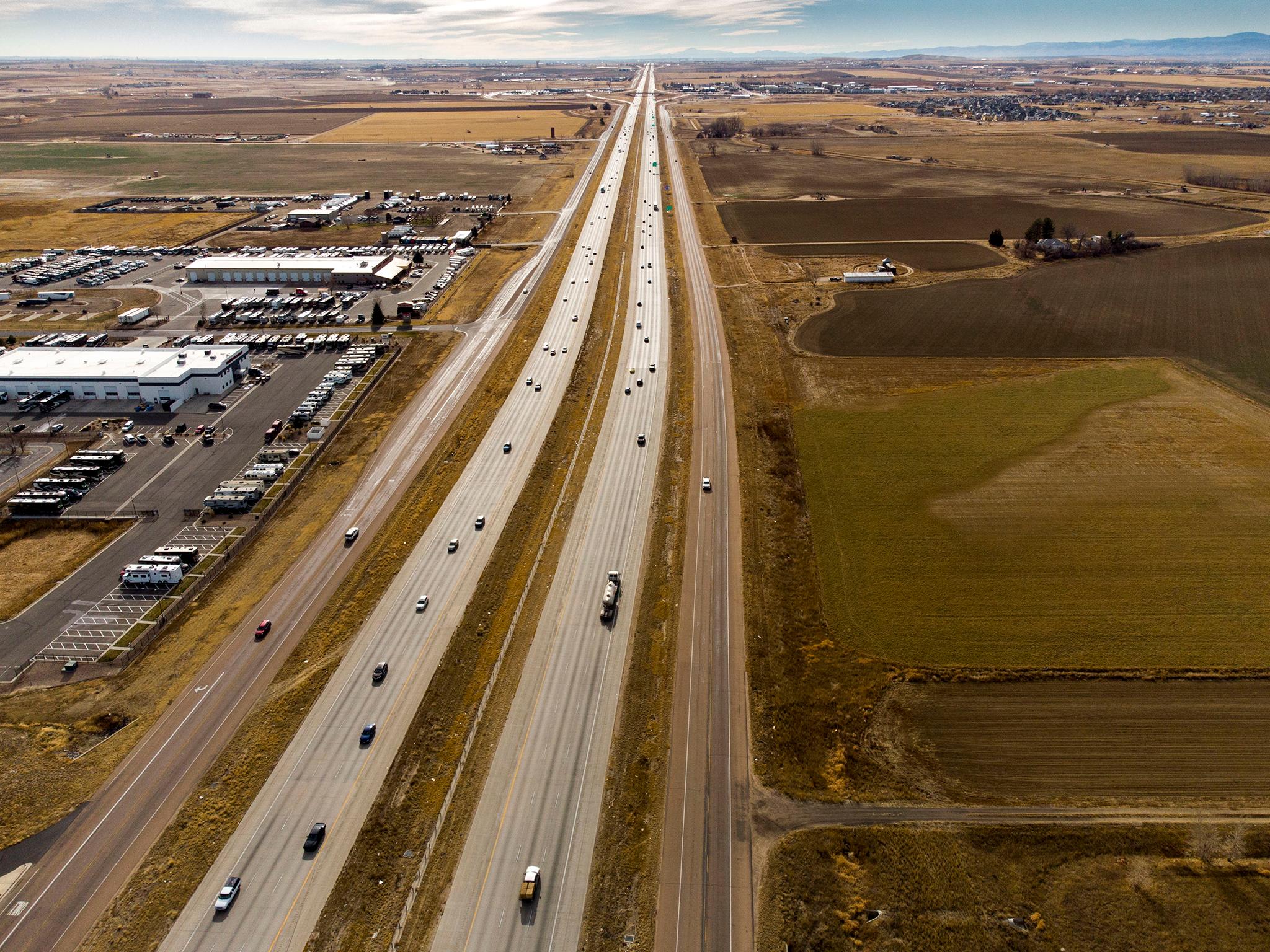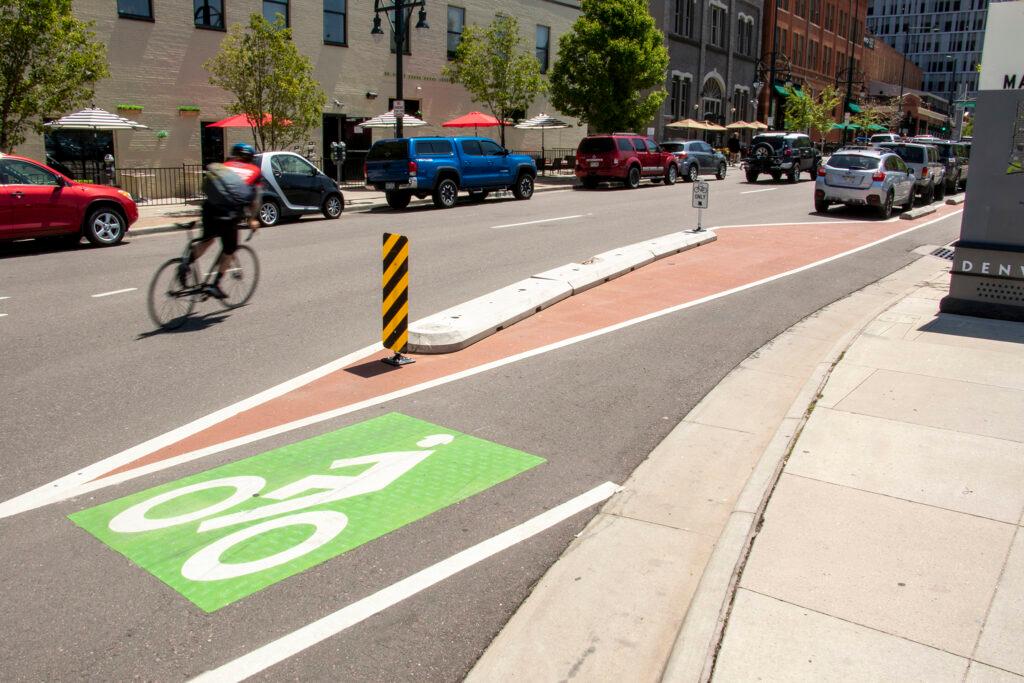
The Colorado Transportation Commission on Thursday approved a new rule that could divert billions of dollars to clean transportation projects in the coming decades.
The rule will require the state Department of Transportation and the state’s five metropolitan planning organizations to measure the climate impact of planned projects and offset them if they exceed a given amount. Transportation-related emissions now make up the largest source of climate pollutants in Colorado.
State officials estimate the rule could shift some $6.7 billion by 2050 toward public transit, pedestrian and bicycle infrastructure, construction emission reduction, and other environmentally friendly strategies. They also hope it will incentivize local governments toward more efficient land use, with denser housing and commercial developments that require less travel.
Members of the commission said the rule is an important step to address climate change — and a difficult one because state transportation agencies have historically been singularly focused on building and maintaining roads.
“I’m extremely proud of the fact that we are taking a national lead here,” said Commissioner Terry Hart, who represents Pueblo and southeastern Colorado. “And I’m proud of the fact that we are going to set a national standard on one of the key components to contributions to greenhouse gas and how to reduce those.”

The rule was presented to the public at 10 hearings across the state, and received thousands of pages of comments. Thursday’s 10-to-1 vote was preceded by more than an hours’ worth of public comments from Democratic lawmakers, local elected officials, business interests and environmental advocates. Most spoke in favor of the rule, citing the worsening effects of climate change.
“It’s December, and the days are going to start getting longer in less than a week and so summer is on the way. And the winter tourism season has yet to start — our businesses are suffering from that,” said Clear Creek County Commissioner Randall Wheelock, who called CDOT’s rule a “solid, moderate step in the right direction.”
The commission took up the rule at the direction of a Democratic transportation funding bill that passed earlier this year. The architects of that bill — Sen. Faith Winter, D-Westminster, and Rep. Matthew Gray, D-Broomfield — both spoke in support of the rule.
“I am optimistic that this will be a strong rule,” Winter told the commission.
Business groups and officials worry road projects could go unfunded
Some business groups and local elected officials — especially from the northern Front Range and Pikes Peak regions — have spoken out against the rule, saying it could limit highway expansions they say are essential to the state’s economy.
“I know there’s a concern out there about the environment, but I need to work,” Christina Lara, co-owner of Frederick-based NorthWestern Railroad Construction, told the commission. ”We are not office employees. We are outside field workers and need I-25 access, particularly widening of I-25 to do our work. We cannot use mass transit.”
Environmental groups argue that the state can’t expand any of its highways and also meet its climate goals because larger roads typically attract more drivers. The state is trying to reduce transportation-related emissions by about 12.7 million metric tons by 2030. The mass adoption of electric vehicles would get the state only about two-thirds of the way to that goal, they say, necessitating the need for investment in other modes of travel.
CDOT has tried to strike a balance. Executive Director Shoshana Lew has said the state will continue to expand highways where it deems them necessary, including a bottleneck on Interstate 70 near Idaho Springs and truck-heavy Interstate 270 in Commerce City. A recent change to the rule, made over the objections of CDOT staff, also opens the door to more expansion projects.
The rule’s effect on how Coloradans travel and any future emissions reductions will depend on how CDOT and the commission enforce it on local projects approved by metropolitan planning organizations, as well as the department’s own spending. It goes into effect in February 2022.
“It’s a tough one, because it’s a big change and it’s a big move for Colorado,” said commission chair Kathy Hall of Grand Junction. “And I’m hoping so much that it will be very productive. It’s been a tough one for me because there’s a lot of it that I kind of have a problem with. But I am supportive of it because everyone has worked so hard on it.”
- Polis’ 2022-2023 budget plan includes money to make public transit free during Colorado’s ozone season
- Better air, less climate impact possible if companies, government switch to cleaner fleet vehicles
- Colorado’s love for SUVs is stronger than ever, even as pedestrian deaths rise and the climate warms
- Colorado is getting around $1 billion from the federal infrastructure bill for transportation projects









